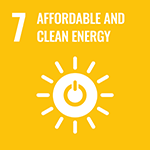Producing Biomass Energy and Material through Revegetation of Alang-alang (Imperata cylindrica) Fields
Environment / Energy (Carbon Neutrality)
 Republic of Indonesia
Republic of Indonesia
Principal Investigator


Dr.
Head, Research Centre for Plant Conservation, Botanic Gardens, and Forestry - National Research and Innovation Agency (BRIN)
Andes Hamuraby Rozak
ODA Recipient Country
Republic of Indonesia
Research Institutions in Japan
Kyoto University (Research Institute for Sustainable Humanosphere, Graduate School of Agriculture)
Research Institutions in Counterpart Country
National Research and Innovation Agency (BRIN) , Research Center for Plant Conservation, Research Center for Biology, Research Center for Biotechnology, Research Center for Biomaterials
Adoption fiscal year
FY 2015
Research Period
5 Years
Overview of the Research Project
A comprehensive approach spanning restoration of soil to the development of applications for biomass products
Grassland that has emerged in the space left by felled tropical natural forest has been difficult to convert to agricultural or forest land. To address this problem, we aim to comprehensively identify the microorganisms present in the soil environment using the latest genome technology, and to conduct an efficient fertilization process to convert the soil into productive agricultural land and restore/maintain biodiversity. Simultaneously, we aim to develop largesized Poaceae (grass) species with a high lignin content—whose biomass output volume is several times that of tree species—and from these develop and practicalize low environmental impact wood-based material and fuel pellets.
Contribution to environmental preservation and economic development by converting unusable land into sustainable biomass production sites.
We believe that the revegetation and sustainable utilization of grass wasteland in Indonesia will serve as a globally deployable model for converting land devastated by the felling of natural forest into biomass resource/energy production sites, thus preserving the environment. This project also has the potential to bring regional economic development and mutual benefit to both resource-producing and resource-importing nations based on fair and equitable allocation and use of resources.
Photo gallery
Research Project Web site
Press Release
Links
Projects
Contact Us
Japan Science and Technology Agency (JST)
Department of International Affairs
SATREPS Group
TEL : +81-3-5214-8085
Related articles by Category
- Carbon Neutrality
Environment / Energy
(Carbon Neutrality)
 Kingdom of Cambodia
Kingdom of Cambodia
Using water management to reduce methane emissions from rice paddies!
Development and Social Implementation of Greenhouse Gas Emission Reduction Technologies in Paddy Fields of West Tonle Sap Lake by Establishing a Large Paddy Area Water Management System
- Indonesia
Environment / Energy
(Carbon Neutrality)
 Republic of Indonesia
Republic of Indonesia
Creating a new chemical industry linked to Indonesian agriculture!
Development of Integrated Bio-circular Economy from Food and Energy Estate Waste Fraction to Biofuel and Bio-chemicals
- Asia
Environment / Energy
(Global-scale environmental issues)
 Kingdom of Thailand
Kingdom of Thailand
“Natural rubber seeds”, the unlimited potential hiding in natural rubber plantations
Utilization Technology of Rubber Seeds for Green Products to Mitigate Global Warming and Plastic Pollution
- SDGs : Goal.15
Environment / Energy
(Global-scale environmental issues)
 Republic of Peru
Republic of Peru
Solve the challenges facing the Andean-Amazon region by sustainable forest management
Establishment of Integrated Forest Management System Model for Conservation of Mountain Forest Ecosystems in the Andean-Amazon






















